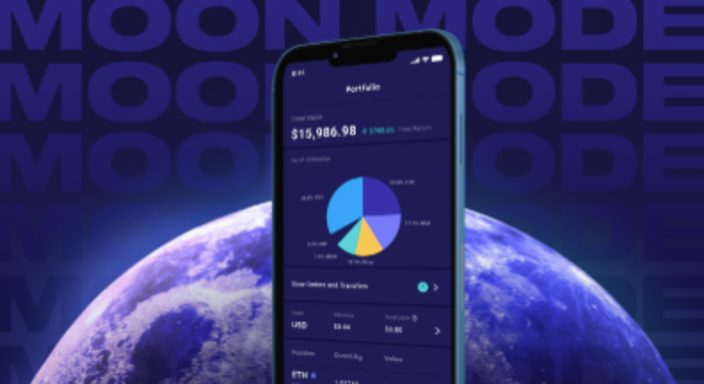
Adhir Kadve of Eight Capital is still seeing the positive about Voyager Digital Ltd. (Voyager Digital Stock Quote, Chart, News CSE:VOYG). In an update to clients on Wednesday, Kadve maintained a “Buy” rating but lowered his target price from C$23/share to C$17/share for a potential return of 137 per cent, saying the impact from recent regulatory action taken against the company could prove to be overblown.
Founded in 2018 and headquartered in New York City, Voyager Digital is a digital asset focused agency broker and financial services firm with 3.2 million Verified Users and over one million funded accounts.
Kadve’s latest analysis comes after Voyager Digital responded to cease and desist orders for its Voyager Earn program, with Kadve also providing insight into how Voyager has been affected by the overall cryptocurrency backdrop.
Citing figures from theblockcrypto.com and coinmarketcap.com, Kadve noted that cryptocurrency has gone off a cliff in the most recent calendar quarter, punctuated by a 40 per cent decline in crypto trading volumes and a 27 per cent drop in the average cryptocurrency market cap.
Further compounding matters for Voyager Digital were the March 29 Cease and Desist orders from North American Securities Administrators Association member states Indiana, Kentucky, New Jersey and Oklahoma, along with Show Cause orders from Alabama, Texas, Vermont and Washington in regards to its Voyager Earn program, with the states believing that Voyager is selling unregistered securities in the form of interest-earning cryptocurrency accounts.
Despite the potential legal ramifications, including the potential to defend its platform in the Show Cause states, Kadve believes the states who issued the Cease and Desist orders will only account for five per cent of the company’s total AUM.
“While we do not currently know what the ultimate impact from these orders will be, we believe that in the near term the likely impact will be on User Acquisition, specifically in states who have issued Cease and Desist Orders,” Kadve said. “In those States, Voyager will not be able to use the Voyager Earn program to entice users onto the platform.”
According to Kadve, the government believes Voyager Earn, which is the company’s Crypto Lending and Staking revenue segment that facilitates crypto liquidity, should be considered securities and thereby be subject to registration with appropriate agencies and states.
“Voyager has always recognized that the US regulatory framework must evolve, and in some cases completely transform, to address the needs of the rapidly expanding crypto sector,” said Stephen Ehrlich, CEO and Co-Founder of Voyager Digital in the company’s April 5 update on the States Orders. “Historically, Voyager has advocated for thoughtful regulation, which is a natural progression for this asset class. We believe tailored regulation will spur increased confidence and adoption of crypto assets. Nonetheless, Voyager continues to pursue its strategy to innovate and grow the business and position the Company as a leader in the crypto asset market.”
Looking ahead, Kadve points to a February 14 settlement between the U.S. Securities and Exchanges Commission with 32 NASAA states and BlockFi pertaining to the latter’s BlockFi Interest Accounts. As part of the agreement, BlockFi will pay $100 million to the SEC and to the States, while also ceasing to offer BIA to any new users in the United States, though existing users can continue with it.
In addition, the company will be filing a confidential S-1 with the SEC for BlockFi Yield, which would be the replacement to the BIA platform.
The updates have prompted Kadve to revise his financial projections for Voyager Digital, lowering his revenue target for 2022 from $488.2 million to $449.7 million, which would still represent a potential year-over-year increase of 157 per cent. Meanwhile, Kadve also lowered his 2023 projection from $615.9 million to $545.2 million, suggesting a year-over-year increase of 21 per cent. (All figures in US dollars except where noted otherwise.)
From a valuation perspective, Kadve forecasts the company’s EV/Sales multiple to drop from the reported 5x in 2021 to a projected 2x in 2022, then to a projected 1.6x in 2023.
Meanwhile, after reporting adjusted EBITDA of $62.7 million for a 36 per cent margin in 2021, Kadve has modified his 2022 forecast to suggest a loss of $11.5 million, down from his previous projection of a $5 million loss. Looking ahead to 2023, Kadve sees adjusted EBITDA becoming positive again, albeit at a reduced figure of $50.8 million (previously $55.2 million) for a margin of nine per cent.
In terms of valuation, Kadve has the EV/EBITDA multiple shifting from 14.1x in 2021 to NMF in 2022, then returning at a projected 17.4x in 2023.
Voyager Digital’s stock price has tumbled by 64.8 per cent since it began trading on the Toronto Stock Exchange in September, with a pronounced 54 per cent drop since the start of 2022. Voyager had vaulted to a high point of C$25.17/share on November 9 but it has since fallen to a low point of C$6.40/share on March 30.
Leave a Reply
You must be logged in to post a comment.






 Share
Share Tweet
Tweet Share
Share




Comment